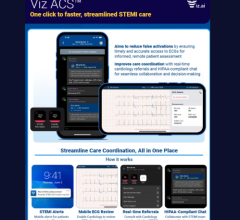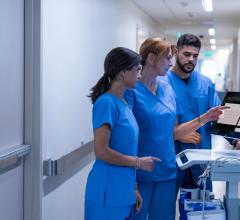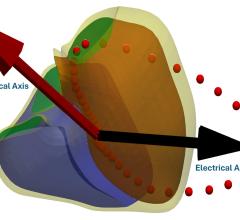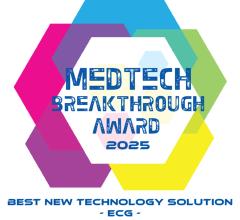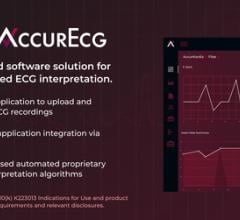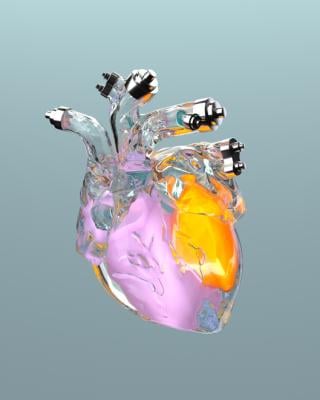
Getty Images
September 29, 2022 — Researchers at Mayo Clinic used artificial intelligence (AI) to evaluate patients’ electrocardiograms (ECGs) in a targeted strategy to screen for atrial fibrillation, a common heart rhythm disorder. Atrial fibrillation is an irregular heartbeat that can lead to blood clots that may travel to the brain and cause a stroke, but it is largely underdiagnosed. In the digitally-enabled, decentralized study, AI identified new cases of atrial fibrillation that would not have come to clinical attention during routine care.
Earlier research had already developed an AI algorithm to identify patients with a high likelihood of previously unknown atrial fibrillation. The algorithm for detecting atrial fibrillation in normal sinus rhythm from an ECG is licensed to Anumana Inc., an AI-driven health technology company, by nference and Mayo Clinic.
"We believe that atrial fibrillation screening has great potential, but currently the yield is too low and the cost is too high to make widespread screening a reality," says Peter Noseworthy, M.D., a cardiac electrophysiologist at Mayo Clinic and lead author of the study. "This study demonstrates that an AI-ECG algorithm can help target screening to patients who are most likely to benefit."
About the study
The study enrolled 1,003 patients for continuous monitoring and used another 1,003 patients from usual care as real-world controls. The findings, published in The Lancet, showed that AI can indeed identify a subgroup of high-risk patients who would benefit more from further intensive heart monitoring to detect atrial fibrillation, supporting an AI-guided targeted screening strategy.
ECGs are commonly performed for a variety of diagnostics, but since atrial fibrillation can be fleeting, the chance of catching an episode on a single 10-second ECG tracing is low. Patients can undergo continuous or intermittent cardiac monitoring approaches that have higher detection rates, but they are too resource-intensive to apply to everyone and can be burdensome and expensive for patients.
This is where the AI-guided ECG may be useful. The AI algorithm can identify patients who, even though they are in normal rhythm on the day of the ECG, may have an increased risk of undetected episodes of atrial fibrillation at other times. Such patients can then undergo additional monitoring to confirm the diagnosis.
"Traditional screening programs select patients based on age (65 or older) or the presence of conditions such as high blood pressure. These approaches make sense because advanced age is one of the most important risk factors for atrial fibrillation. However, it is not feasible to repeatedly conduct intensive heart monitoring in more than 50 million older adults across the country," says Xiaoxi Yao, Ph.D., a health outcomes researcher in the Department of Cardiovascular Medicine and the Mayo Clinic Robert D. and Patricia E. Kern Center for the Science of Health Care Delivery. Dr. Yao is senior author of the study.
"The study shows that an AI algorithm can select a subgroup of older adults who might benefit more from intensive monitoring. If this new strategy is broadly implemented, it could reduce undiagnosed atrial fibrillation, and prevent stroke and death in millions of patients across the globe," says Dr. Yao.
Next steps
The next step in this research will be a multicenter hybrid trial focused on the effectiveness of implementing the AI-ECG workflow in diverse clinical settings and patient populations.
"We hope that this approach will be particularly valuable in resource-constrained environments where the rate of undetected atrial fibrillation may be particularly high, and resources to detect it may be limited. However, more work is needed to overcome barriers to implementation, and further studies must evaluate targeted screening strategies in these environments," says Dr. Noseworthy.
"Now that we have demonstrated that AI-driven atrial fibrillation screening is possible, we will also need to show that patients with screen-detected atrial fibrillation benefit from treatment to prevent stroke," says Dr. Noseworthy, "Our ultimate goal is to prevent strokes. I believe the current study has brought us one step closer."
For more information: www.mayoclinic.org

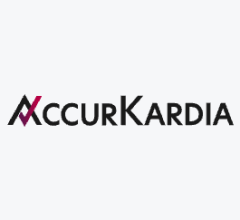
 January 15, 2026
January 15, 2026 


